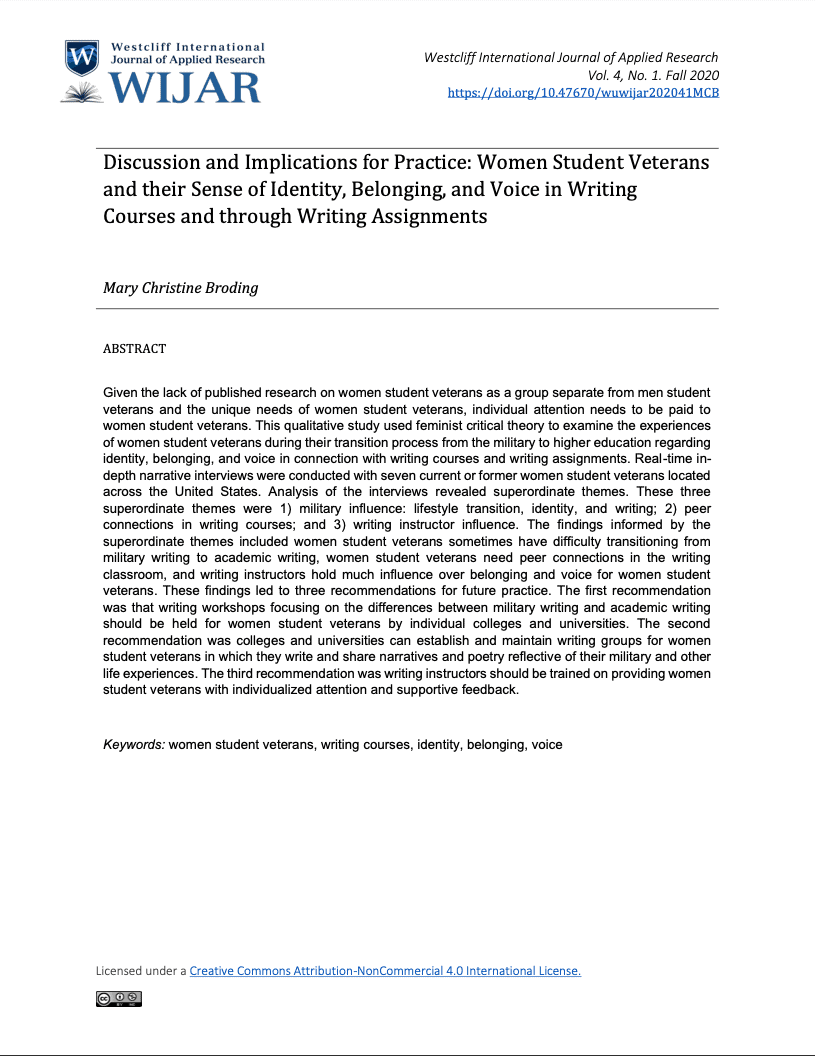Discussion and Implications for Practice: Women Student Veterans and their Sense of Identity, Belonging, and Voice in Writing Courses and through Writing Assignments

Author: Mary Christine Broding
Issue: Fall Issue, 2020
Download ArticleAbstract
Given the lack of published research on women student veterans as a group separate from men student veterans and the unique needs of women student veterans, individual attention needs to be paid to women student veterans. This qualitative study used feminist critical theory to examine the experiences of women student veterans during their transition process from the military to higher education regarding identity, belonging, and voice in connection with writing courses and writing assignments. Real-time in-depth narrative interviews were conducted with seven current or former women student veterans located across the United States. Analysis of the interviews revealed superordinate themes. These three superordinate themes were 1) military influence: lifestyle transition, identity, and writing; 2) peer connections in writing courses; and 3) writing instructor influence. The findings informed by the superordinate themes included women student veterans sometimes have difficulty transitioning from military writing to academic writing, women student veterans need peer connections in the writing classroom, and writing instructors hold much influence over belonging and voice for women student veterans. These findings led to three recommendations for future practice. The first recommendation was that writing workshops focusing on the differences between military writing and academic writing should be held for women student veterans by individual colleges and universities. The second recommendation was colleges and universities can establish and maintain writing groups for women student veterans in which they write and share narratives and poetry reflective of their military and other life experiences. The third recommendation was writing instructors should be trained on providing women student veterans with individualized attention and supportive feedback.
